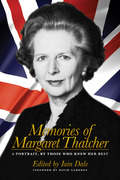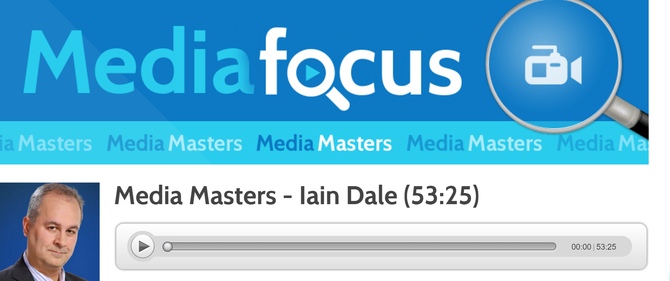Diary
ConHome Diary: Remainers Triumph in the Conservative Reshuffle
16 Jun 2017 at 13:35
I write this in light of what has happened at Grenfell Tower in West London and I am fully aware that picking apart a reshuffle after so many people have tragically died, makes the ‘game of politics’ seem rather petty. But writing about politics is what I do, so here goes.
*
I don’t think I have experienced a reshuffle, where I’ve thought, “yup, that was a good one”. Timeservers remain in government while talented ministers are inexplicably sacked. This reshuffle was no different. There seems to be little long term planning, little thought of career development or appointment based on expertise. Below cabinet level appointments are generally made by the chief whip, with less involvement from the prime minister. The prime minister’s chief of staff Gavin Barwell will have been involved too. The one theme that runs through this reshuffle at Minister of State and Parliamentary Under Secretary of State level is the advance of Remain supporting Tory MPs. It’s as if the June 23 referendum had never happened. Many are speculating about whether the new arch-Remain supporting First Secretary of State, Damian Green, has also been wielding some reshuffle influence.
So here’s the list of the 12 new ministers/retreads (including recent whips) who supported Remain:
Mark Field
Jackie Doyle-Price
Steve Brine
Claire Perry
Alok Sharma
John Glen
Alistair Burt
Michael Ellis
Chloe Smith
Mel Stride
Anne Milton
Guy Opperman
I can find only four new entrants to the government who supported Brexit…
Steve Baker
Jake Berry
Martin Callanan.
Steve Barclay
Twelve to four. Draw your own conclusions. The question is whether the chief whip Gavin Williamson has done this deliberately off his own bat, or whether it’s due to orders from Number Ten. I can give no insight into this at all, I’m afraid, but it doesn’t bode well for those of us who continue to believe Brexit must mean Brexit.
One of the most concerning things has been the defenestration of David Davis’s Brexit Department. Just six days before the negotiations with the EU are to begin, he was left with one junior minister, Robin Walker. At the weekend his Lords minister, George Bridges resigned, apparently in part because he felt he couldn’t do his job any longer because of the obstruction of Number 10. And this, even though two of the main obstructors had left their jobs. One paper reported that they wouldn’t even show him the draft Article 50 letter. He was in charge of preparing the Great Repeal Bill – one of the most complex piece of legislation ever to be put before Parliament. He was a uniting force and well thought of in the Lords. On Tuesday, the Minister of State in the department, former Welsh Secretary David Jones was summarily fired. It’s been reported elsewhere that David Davis was not informed and no reason was given, although the decision is thought to be related to a slightly disloyal comment Jones is said to have made in the media over the weekend where he emulated RAB Butler’s description of Sir Anthony Eden by describing Theresa May as “the strongest leader we have got at the moment.” Those last three words apparently did for him. How petty can you get? Jones had spent the last year building alliances in the foreign ministries of Europe and had received much praise for his House of Commons performances.
Bizarrely, Secretaries of State are rarely consulted over the appointment of their junior ministers. The replacement for Lord Bridges was Baroness Anelay, an arch remainer and former Foreign Office minister. Joyce Anelay was a valued member of DD’s shadow home affairs team back in the day when I was David’s Chief of Staff, and David had an excellent relationship with her, so in some ways it’s a canny appointment. However, it’s also a provocative one, and quite how she will get up to speed in the time available is one of the more daunting tasks faced by any new ministers. She is a natural conciliator and one of the nicest people in politics.
All eyes then shifted to David Jones’s replacement. Surely they couldn’t appoint another Remainer…. Could they? All sorts of rumours were flying around including one that Sir Alan Duncan would be getting the job. One can only imagine what consequences that might have provoked. In the end Steve Baker, the Eurosceptic’s Eurosceptic was appointed in a last minute bid to calm the concerns of Brexiteers.
But what I just don’t understand here is why would No 10 appear to deliberately provoke David Davis when he was the first to rally around Theresa May in the hours after the election result? It doesn’t take Einstein to work out that it might just be a good idea to consult him over ministerial appointments. I haven’t spoken to him so I have no idea whether he is even happy with the appointment of Steve Baker. On the face of it he might well be, but a more sensible appointment to that post might have been Dominic Raab. Raab succeeded me as his chief of staff and would have been brilliant in the role. In the event, he’s been put back into the Ministry of Justice.
Moving on to other departments, what on earth was behind the sackings of Robert Halfon and Mike Penning? Halfon is one of the most popular Conservative MPs in the Commons with no one having a bad word to say about him. Penning has been a highly impressive minister across several departments. Both illustrated how the Conservative Party had changed and in PR terms were very useful given their own backgrounds. And yet, both were axed. In Penning’s case you could argue that if he was never going to get into Cabinet, maybe it was time for him to go. But if so, how does one explain the survival of a whole host of other Ministers of State? No names, no pack drill. He was the best Roads Minister in living memory, a superb Home Office Minister and did well in every job he was given. And yet he never made it Cabinet, mainly because he was never seen as one of the ‘beautiful people’. Rob Halfon was a key ally of George Osborne. Did this play a part in the decision to sack him? If so, how petty can you get? He really was (and is) the face of working class Conservatism. What message does it send to despatch him summarily to the back benches? Unless there’s something I am missing, it’s an inexplicable decision.
I could go on. But I leave you with a final thought. John Hayes survives yet another reshuffle. Kudos. Respect. I suspect he belongs to the Alistair Burt & Michael Gove category of ministers. Better to have them inside the tent pissing out…
*
Quite why Tim Farron chose to resign on the day when the news was dominated by the Grenfell Tower disaster is anyone’s guess. Reading some of the responses it’s as if he media hounded him out of office for his views on moral issues and his religion. Nothing could be further from the truth. Had Tim Farron given straight answers to straight questions we’d have all respected that. But he didn’t. He equivocated to a point when we all suspected the answers he was giving bore little resemblance to his real views. The point about being a political leader is that you have lead the people, not follow the crowd. If Tim really does believe that homosexuality is a sin, let him come out and declare it. At least we could respect him for his honesty, even if most of us think he would be entirely misguided.























0 comments
Sign up via Facebook or Twitter to comment.